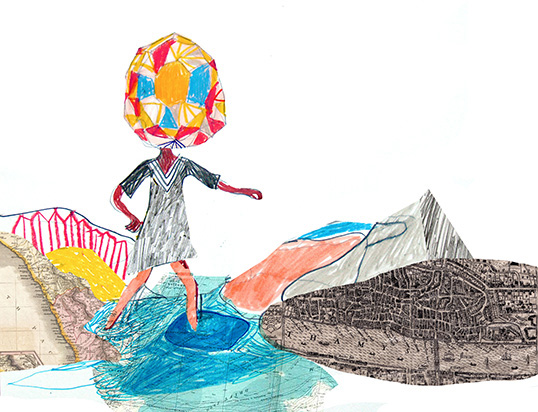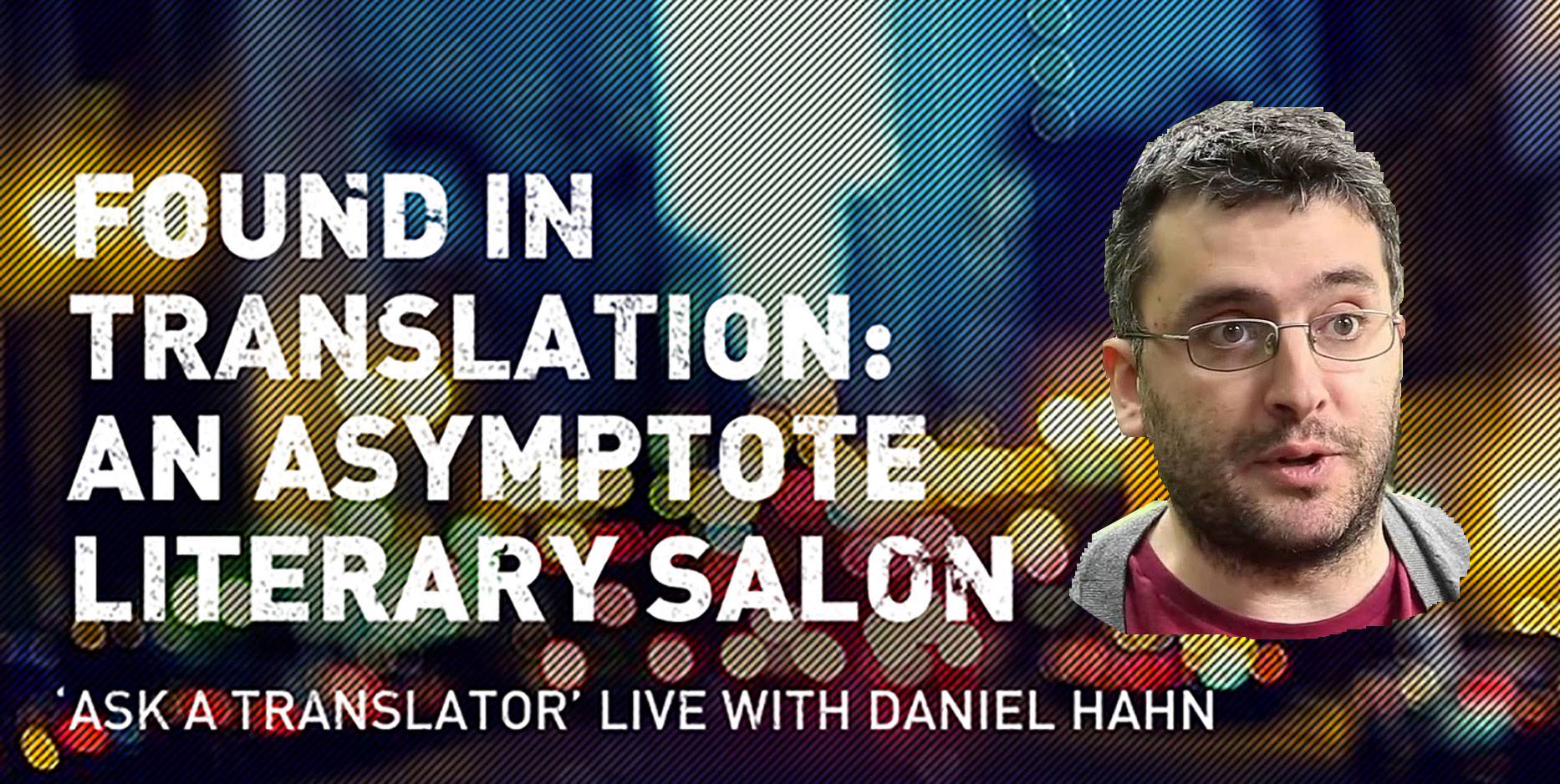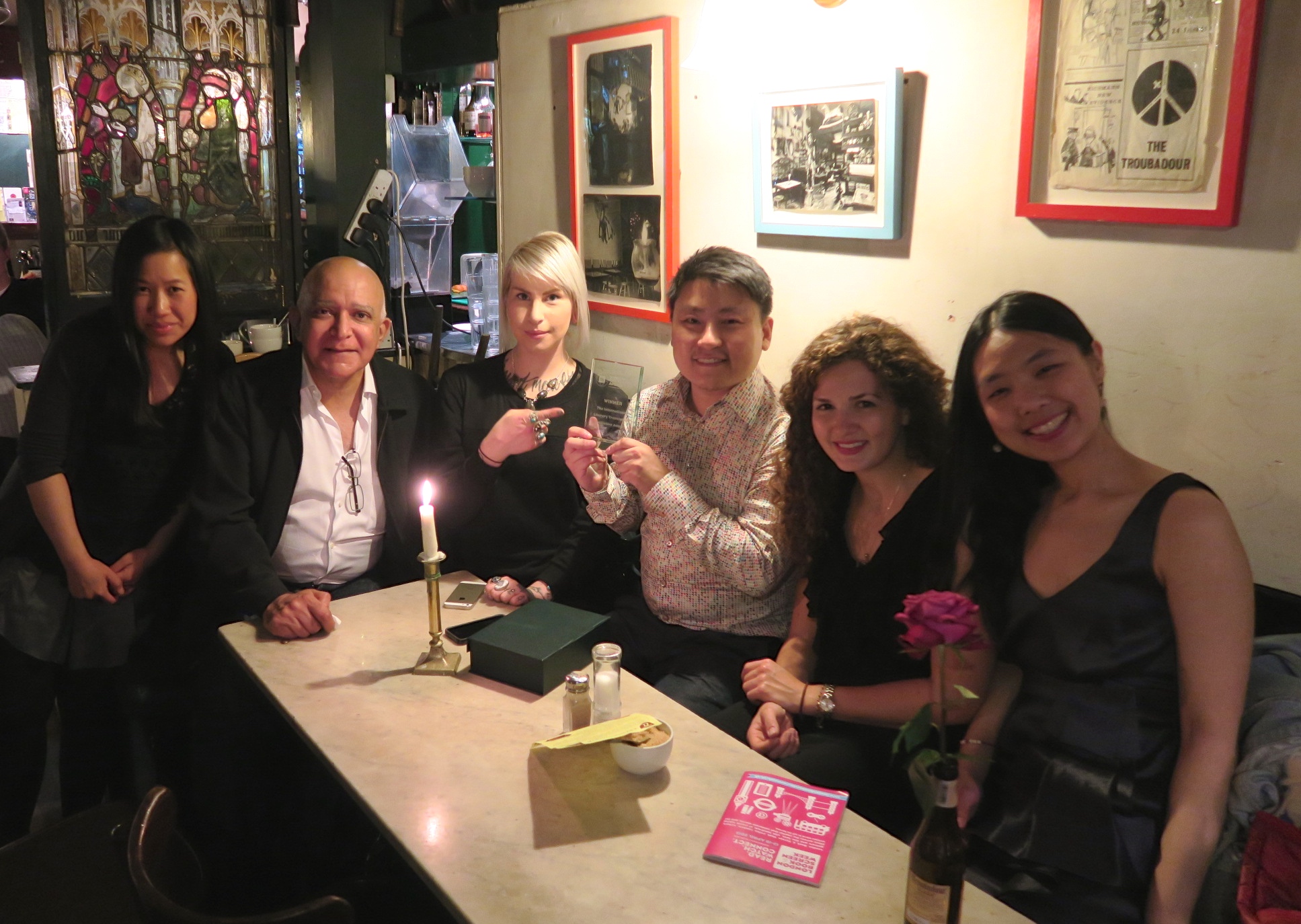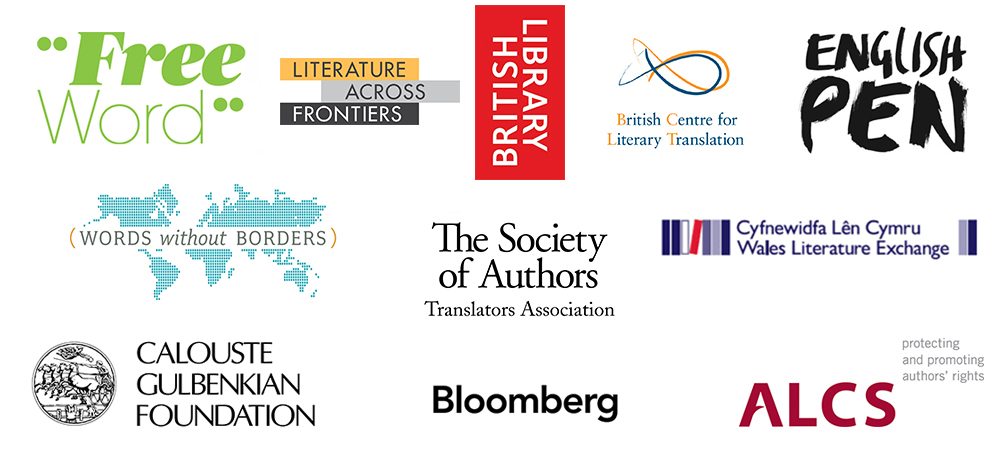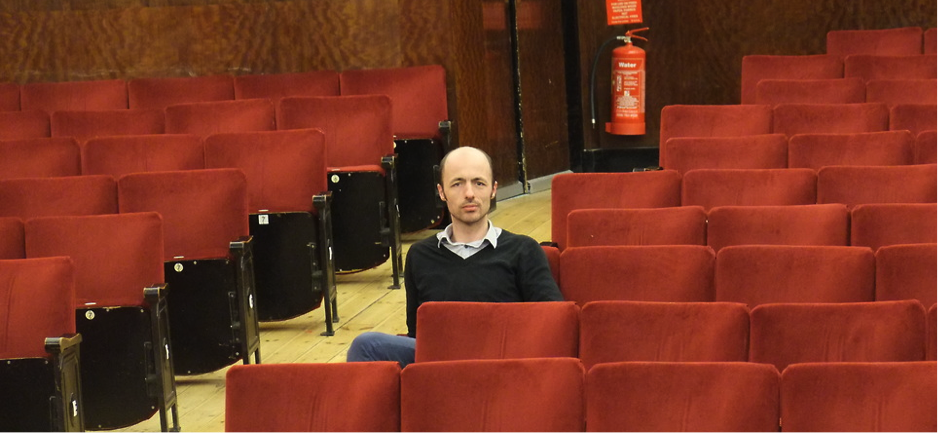The past two Mondays here at the Asymptote Blog, we’ve brought you highlights from the July 2016 issue, THE DIVE. This week we’re back with Ellen Jones, editor of the vibrant and provocative multilingual writing section.
The Asymptote July issue special feature on multilingual writing is the second of its kind. The more than two hundred pieces of original poetry and fiction received in response to last year’s call for submissions—many, many more than we were able to publish—opened our eyes to the wealth of new writers who are experimenting with language mixing, and persuaded us that it was necessary to run the feature again.
What I love most about this work is its variety. There are seven contributions, from writers as far afield as Peru, South Africa, and India that, between them, incorporate English, German, Spanish, French, Romanian, Sanskrit, Afrikaans, Italian, Nahuatl, and Arabic. But more importantly, they also make use of the spaces in between these languages: unique cross-lingual sound combinations and associations, and spoken varieties that are thriving but have yet to be documented. There is some poetry, some prose. Some written by well-established literary figures and some by poets who are only just finding their voices. Some pieces for readers of only English, others best left to the true polyglots among us.

